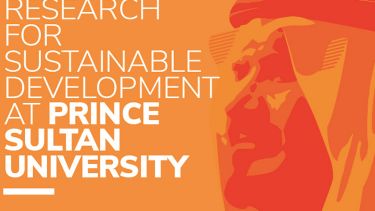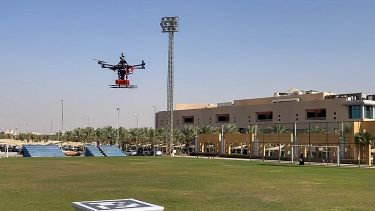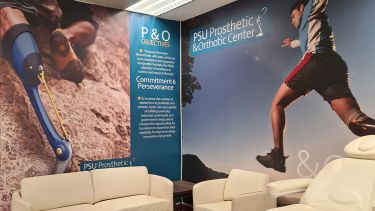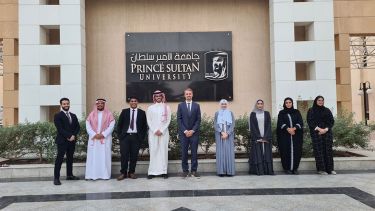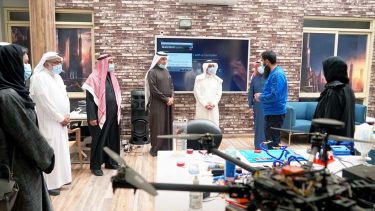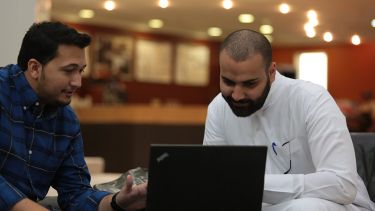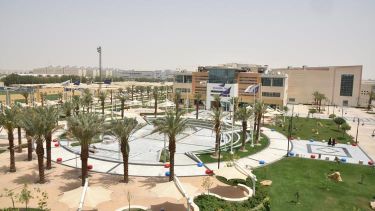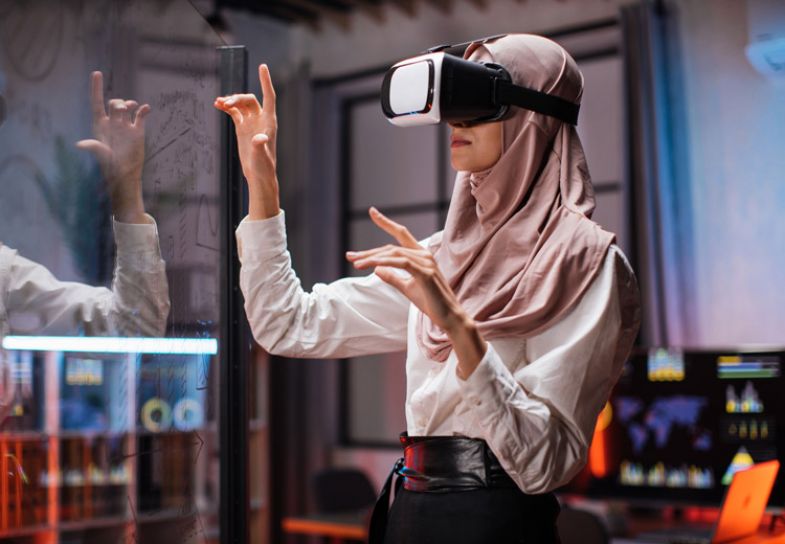
Researchers and students are pioneering interdisciplinary humanities study through the use of technology
Digital humanities is an emerging and exciting area for academics across the world, helping students and faculty members explore their areas of expertise in new ways, using cutting-edge technology such as extended reality – which includes virtual and augmented reality – and artificial intelligence. Prince Sultan University (PSU) in Saudi Arabia has been pioneering digital humanities both nationally and in the Gulf region since 2019, and this is being led by the university’s College of Humanities and Science. The college already boasts top students and academics working in the fields of languages, communications and research, and is embracing the digital revolution to deepen this understanding.
“Our research group is based on collaboration and is the first of its kind,” explains Orchida Fayez, assistant professor and leader of the digital humanities research group at PSU. “We started with a group of avid researchers with a passion for humanities, who wanted to learn more about areas such as computational analysis. We wanted to overcome this idea that humanities is separate from the digital world.” The group began by promoting digital humanities, looking into how different faculties were interacting with technology, and then introducing an immersive platform that would help them overcome any concerns about technology use.
The group embraces a module-based cycle for all projects, first assessing the needs it will address, then developing a prototype, and then creating a platform for publication or sharing. Some of the team’s work has appeared in highly ranked journals.
One project uses Omeka, an open-source web publishing platform for digital collections, as a way to foster student and faculty involvement in its research topics. “Our model is to use accessible and user-friendly technology, rather than sitting in an ivory tower,” Fayez says. The outcome is a study Fayez published in 2021 about how Omeka could help construct a metadata model for students to deconstruct a series of four classic evil characters in ancient literature. Using the platform means researchers and students can take a more hands-on approach to the themes and concepts involved rather than a more static and traditional mode of study.
Another prominent project is an immersive technology project that was showcased at the LEAP technology conference in Saudi Arabia in 2022. This was a virtual reality game called Six Steps that supports students facing anxiety, funded by PSU as part of its investment in research during Covid-19. In the game, players experience different levels of a dark environment of stress and pandemic-induced isolation, accompanied by a guide who provides psychological onboarding and instructions, but also motivates them to overcome their challenges while in a safe and controlled environment. The game not only helped students with their mental well-being during the pandemic but continues to be a sustainable mechanism for support.
The research group has submitted projects to a Women in STEM event in the kingdom, including one where a team from a diverse range of backgrounds created a chatbot. A number of students came from outside the computer science specialism, emphasising interdisciplinarity and ensuring there is no divide between digital experts and those in the humanities. At all stages, multidisciplinary contributions are welcomed – something that also helps reduce bias in the design process. “We want experts from technology, finance, business and humanities and they get involved in the cycle between assessing needs and designing the final product or tool,” Fayez says. The chatbot earned third prize at the event.
Working in this way helps promote sustainability, argues Hala Ismail, assistant professor in the department of translation and linguistics at PSU. “We encourage collaboration between ours and other fields, proving that computer technology can have applications in the field of humanities,” she says. “The way we approach digital innovation supports a sustainable future because we create that link. Furthermore, we’re addressing real problems, because all projects have been very beneficial to students and faculty.” A further project was presented in 2022 at the Fifth International Conference of Women in Data Science at PSU, looking at how crowdsourcing ideas via social media could impact climate change, and the role of social media in reflecting ordinary citizens’ involvement in this important topic. The study is just one of the team’s contributions that aligns with United Nations Sustainable Development Goals, including gender equality and reduced inequalities.
Community outreach and engagement is another focus of digital humanities at PSU. The college’s Digital Literacy Club held a successful introduction to digital filmmaking course that was open to the public as well as staff and students from across the university. Students were supported to give training to members of the public in areas such as digital storytelling, recording and video editing. “We involved the community in a really positive way,” Fayez says.
Finally, reducing barriers to entry in digital humanities is important to everyone at the college. There is a focus on using inexpensive or open-source platforms such as Omeka or Google Cardboard – a low-cost alternative to virtual reality goggles – for example. But there is still some way to go in progressing the profile of this emerging academic area. “It’s not an easy mission doing something new, and sometimes we’re asking people to get out of their comfort zone. But at the same time, we’re showing everybody there is room for participation,” Fayez concludes.
Find out more about the College of Humanities and Science at PSU.

